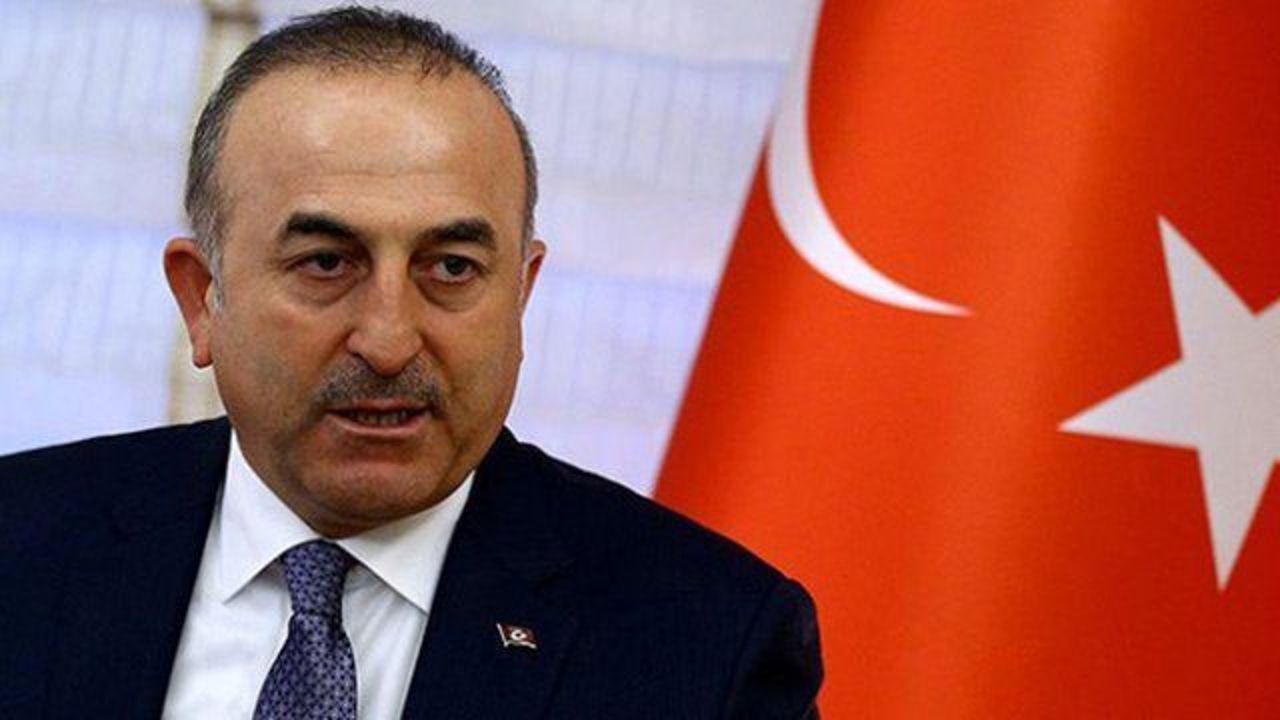Turkey, US agree on clearing Syrian regions of PKK
After Manbij, other regions of Syria will be liberated from PKK/YPG terror group, says Turkish foreign minister

Turkey and the U.S. agree that other Syrian regions will be rid of PKK/YPG terrorists after the northern city of Manbij is cleared, Foreign Minister Mevlut Cavusoglu said on Friday.
Speaking at Anadolu Agency’s Editors' Desk, Cavusoglu said: “There is a clear statement on our roadmap [with U.S.] that we will move on to other areas after Manbij [has been cleared of PKK/YPG terrorists].
“These were discussed and evaluated in our working group meetings and we reached a consensus on this subject.”
The roadmap was announced last month after a meeting in Washington between Cavusoglu and U.S. Secretary of State Mike Pompeo. The deal focuses on the withdrawal of the PKK-affiliated YPG terror group from Manbij and bringing stability to the region.
About the Turkish army patrols in Manbij, Cavusoglu said the withdrawal of YPG/PKK from patrol areas in Manbij did not mean it had completely withdrawn from the area.
On Wednesday, the Turkish military completed its ninth round of patrols in Manbij as part of a deal with the U.S. to rid the area of the YPG/PKK terror group.
On its Twitter account, the Turkish General Staff said both countries' forces conducted separate coordinated patrols in the area between Manbij and the area previously cleared during Turkey’s Operation Euphrates Shield. The first patrols by Turkish and U.S. troops in the region began on June 18.
In its more than 30-year terror campaign against Turkey, the PKK has taken some 40,000 lives, including those of women and children. The YPG/PKK is its Syrian branch.
Referring to the recent counter-terrorism operations in northern Iraq, Cavusoglu said: “Our cooperation will further strengthen after a government is established in Iraq and we will do what is necessary for PKK terror group to be cleared from Iraqi territories.”
Fight against FETO
Early June, Turkish Armed Forces launched fresh counter-terrorism operations in northern Iraq's Qandil Mountain region, a known PKK stronghold.
About the fight against Fetullah Terrorist Organization (FETO), Cavusoglu said: “We will see how seriously they [U.S.] will take it after everything is put on the table. The U.S. should not lose its ally like Turkey.”
Urging the U.S. to give up its “wrong policies” against Ankara, he urged the Washington administration to fulfill Turkey’s demands against FETO.
According to the Turkish government, FETO and its U.S.-based leader Fetullah Gulen orchestrated the defeated coup of July 15, 2016, which left 251 people martyred and nearly 2,200 injured.
Ankara also accuses FETO of being behind a long-running campaign to overthrow the state through the infiltration of Turkish institutions, particularly the military, police and judiciary.
About how bilateral ties might get affected if the U.S. imposes sanctions on Turkey due to its S-400 purchase, the foreign minister said: "The U.S. administration will make the decision. The administration does not want to harm relations with Turkey.
"Especially, [Donald] Trump himself does not want to harm relations with Turkey. He, in real terms, respects our Mr. President.”
Under an accelerated timetable for the S-400 deal, Russia's first deliveries of the advanced anti-aircraft missile system to Turkey are due in late 2019 or early 2020.
About Turkish-Israeli relations, Cavusoglu said Israel was maintaining an aggressive attitude towards Turkey.
Relations with Israel
“Israeli should cease its wrong policies and merciless cruelty, which is incompatible with humanity, in order to normalize our relations with Israel in real terms,” he said.
On Turkish national Ebru Ozkan’s arrest in Tel Aviv, Cavusoglu said: “They [Israel] have been taking steps to deter our citizens from visiting Jerusalem. We will respond to this.”
An Israeli military court on Tuesday extended the detention of Ozkan, who had been under arrest since June 11 for alleged links with terrorist groups, the lawyer said.
On U.S. withdrawal from Iran nuclear deal, Cavusoglu said: “We don’t find the U.S. decisions on sanctions on Iran right.”
In May, Trump withdrew the U.S. from the nuclear deal, which was signed in 2015 between Iran and the P5+1 group of nations (the five permanent members of the UN Security Council plus Germany). The deal placed restrictions on Iran’s nuclear program in exchange for billions of dollars in sanctions relief.
He said Iran should not be forced into a corner since it would be "dangerous and risky”.
Cavusoglu added the U.S. decision against Iran had been taken upon Israeli demand and had no justification.
Also, on Austria’s taking over of the rotating presidency of the Council of the European Union from Bulgaria on July 1, the foreign minister said: “We also do not expect Austria to take a radical decision.”
Austria assumed the presidency for the third time after its terms in 1998 and 2006.







